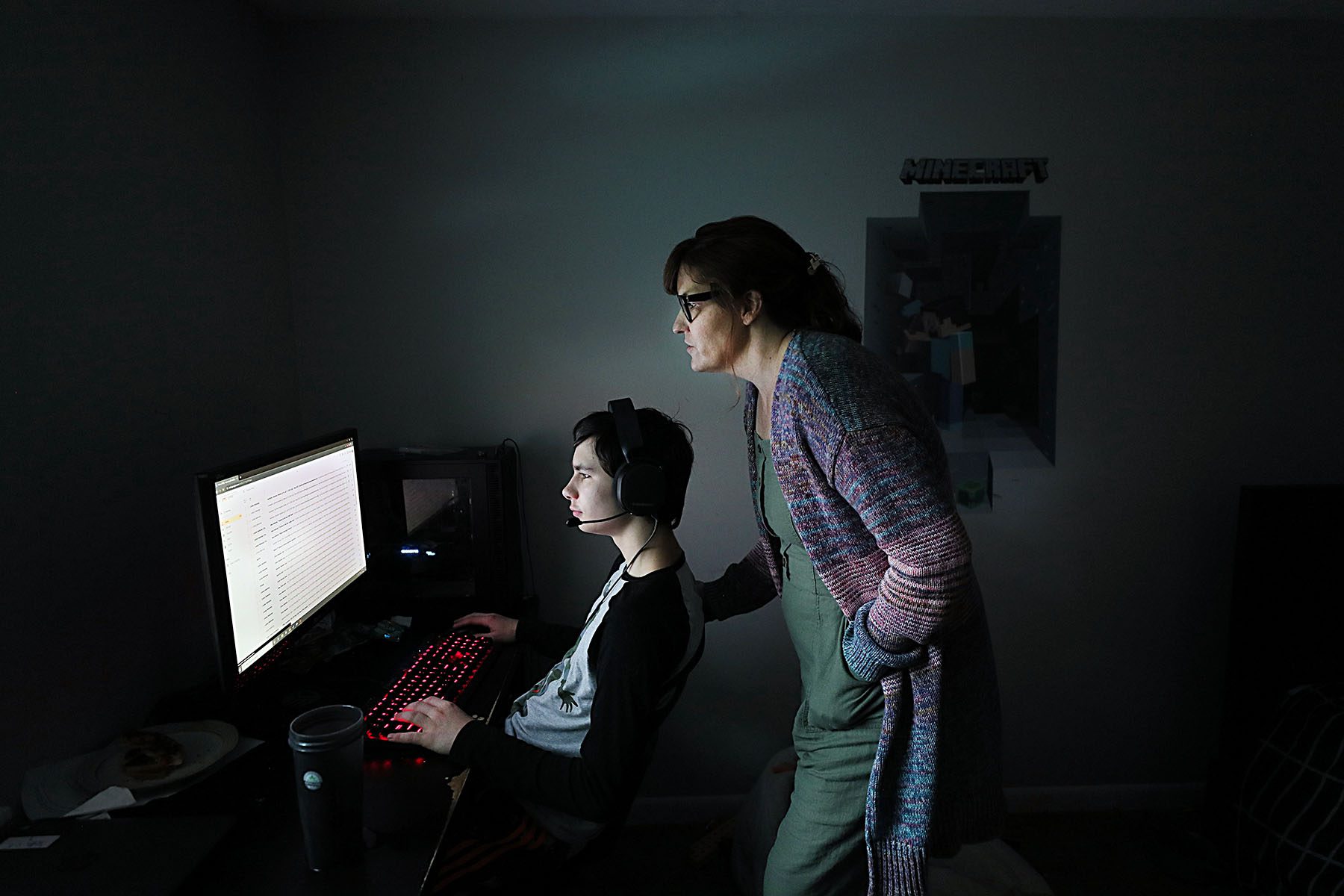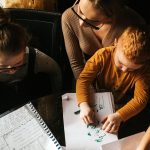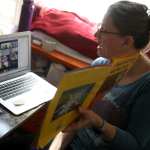Among the already fraught conversations about school responses to the pandemic, families of children who use special education services face even tougher situations. Some of these children require in-person education and one-on-one support in order to learn. Some are at high risk of complications or death from coronavirus. Some fall in both of those categories.
The 19th spoke with half a dozen families who say that their high risk children are not receiving the support they need to receive a meaningful education. For these children, remote learning is ineffective at best, according to their parents, but in-person schooling carries deadly risk. All of the families felt unequipped to provide the intensive support their children need to learn.
Elena Hung is the executive director of Little Lobbyists, a nonprofit dedicated to advocacy for medically complex children and their families. Her daughter, Xiomara, was born with a constellation of complex disabilities impacting her lungs, kidneys and more. She uses a small, pink wheelchair to get around and a feeding tube to eat. She also needs hands-on support to learn.
Despite high vaccination rates in her school district, Hung has opted to keep Xiomara at home. The number of COVID cases locally is still high and Hung is concerned about Xiomara’s safety, even at the expense of her education. Hung described the situation facing families like hers as a “no-win scenario.”
“We need more options. We need the Department of Education to acknowledge that we need both remote learning for some disabled students as well as in-person accommodations for others,” Hung said.
Little Lobbyists and other disability advocacy organizations hope to meet with the Department of Education in the coming weeks, to discuss federal guidance and possible solutions. But for now, many parents feel like they don’t have options.
Kathleen Muldoon’s son Gideon has congenital cytomegalovirus infection, better known as CMV. He faces a constellation of conditions as a result, including cerebral palsy, seizures and diabetes. Gideon does not speak and is also deaf and blind. Before the pandemic, he attended a specialized school for blind children.
“He uses eye gaze technology to tell jokes and play charades with us,” said Muldoon, who lives in Peoria, Arizona.
In order to learn, Gideon needs a one-on-one aide referred to as an “intervener.” Interveners provide hands-on help like tactile sign language — doing sign language against a deafblind person’s hand so they can feel the shape of the words, for example.
“It’s kind of like Hellen Keller and Anne Sullivan,” Muldoon said.
Without an intervener, the remote learning available to Gideon was, at first, unusable. Unlike Muldoon’s other children, “he can’t just look at a PowerPoint,” she explained. So in 2020, Gideon didn’t receive much of an education. Gideon’s non-disabled younger siblings were sent educational activities that his parents tried to include him in. But the material wasn’t designed to be accessible.
“He definitely had more iPad time,” Muldoon said.
As vaccination became more widespread, Muldoon and her husband decided to send Gideon back to in-person schooling in the summer of 2021. Gideon’s health was still at risk, but he needed to learn.
Gideon’s parents, who both work full time, did their best. “There was no hope to get backing for him at that point,” she said. When Gideon’s nurse returned in 2021 to provide him with everyday health care needs, she began acting as an informal intervener, duties outside of her typical job description.
“We’re not therapists, interveners or teachers. It’s better to have those experts with him,” Muldoon said.
Muldoon felt safe sending Gideon back to school at first, because staff were vaccinated and wore masks consistently. But Gideon, who is now 8, was still too young to be vaccinated, and many of the kids struggled to wear masks. His family pulled him out of school again. Gideon is now vaccinated and boosted, but he is still at home.
“My son is beloved and whole and human and amazing. But because he has a complicated body, it’s like he doesn’t count,” Muldoon told The 19th.
Shannon Blosser and his family have found themselves in a similar situation. Blosser’s son, Noah, is autistic and needs one-on-one support to learn and stay safe. “He needs somebody with him at all times,” Blosser said.
Noah, who is a big fan of french fries and Mickey Mouse, attends a public school in Huntington, West Virginia, where he receives speech therapy, among other support services. At the beginning of the pandemic, when school closed, he received little to no education, Blosser said. There was no virtual instruction and there was no speech therapy from March 2020 through the rest of the school year and into the summer.
According to Blosser, the school mailed him a worksheet to do with Noah every couple weeks. “It was like from a coloring book or something, the kind of work you give a kid for busy work near the end of the school year,” he said.
As the school formulated plans for remote education along with other districts nationwide, Blosser still felt like his son was being left out.
“I remember sitting, watching the school’s presentation of how they want to handle COVID [on Zoom] … But most of the presentation was on athletics. There was five seconds on special ed,” Blosser recalled.
Eventually, Noah was able to get speech therapy over Zoom, but it wasn’t effective for him. “He’d have a meltdown. He didn’t understand why his speech therapist was on the computer and not with him.” They ended up pulling him out of virtual speech therapy, which “just wasn’t beneficial,” Blosser said.
School is now open and Noah is back in class and therapy, but closings caused by COVID outbreaks are constant and unexpected. It has been very difficult for Noah. Routines and consistency are important for autistic children.
“We feel like he’s lost two years of education. Like we’re just trying to survive,” Blosser said. “The pandemic has made it more challenging to educate and just raise an autistic child. There were so many systemic issues already and they’re just getting bigger,” he said.







